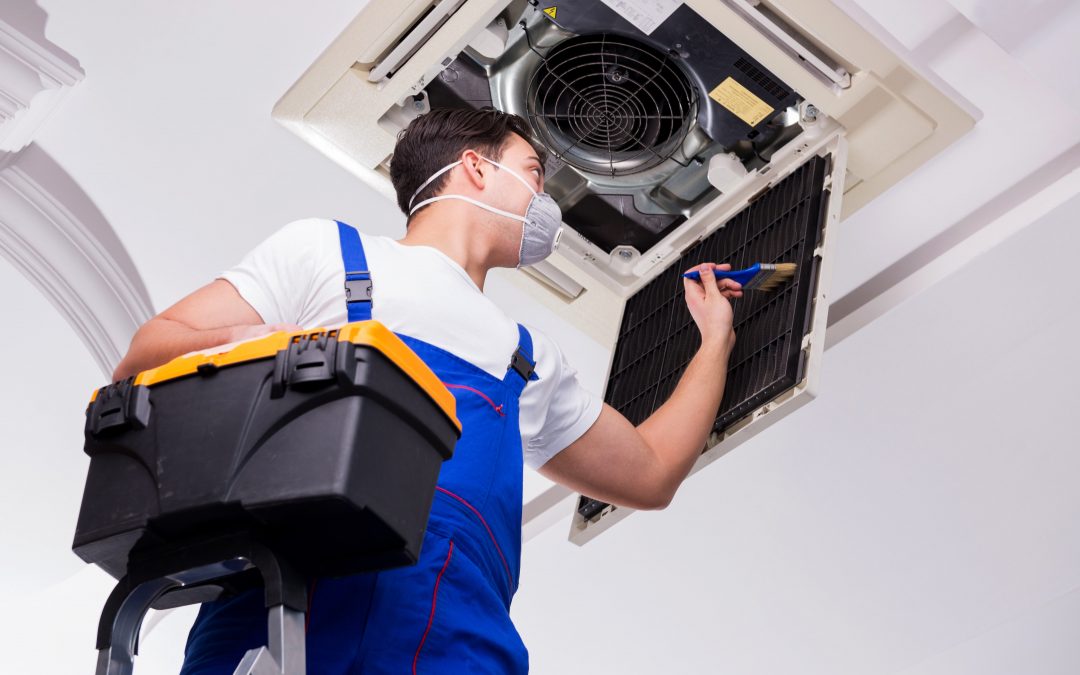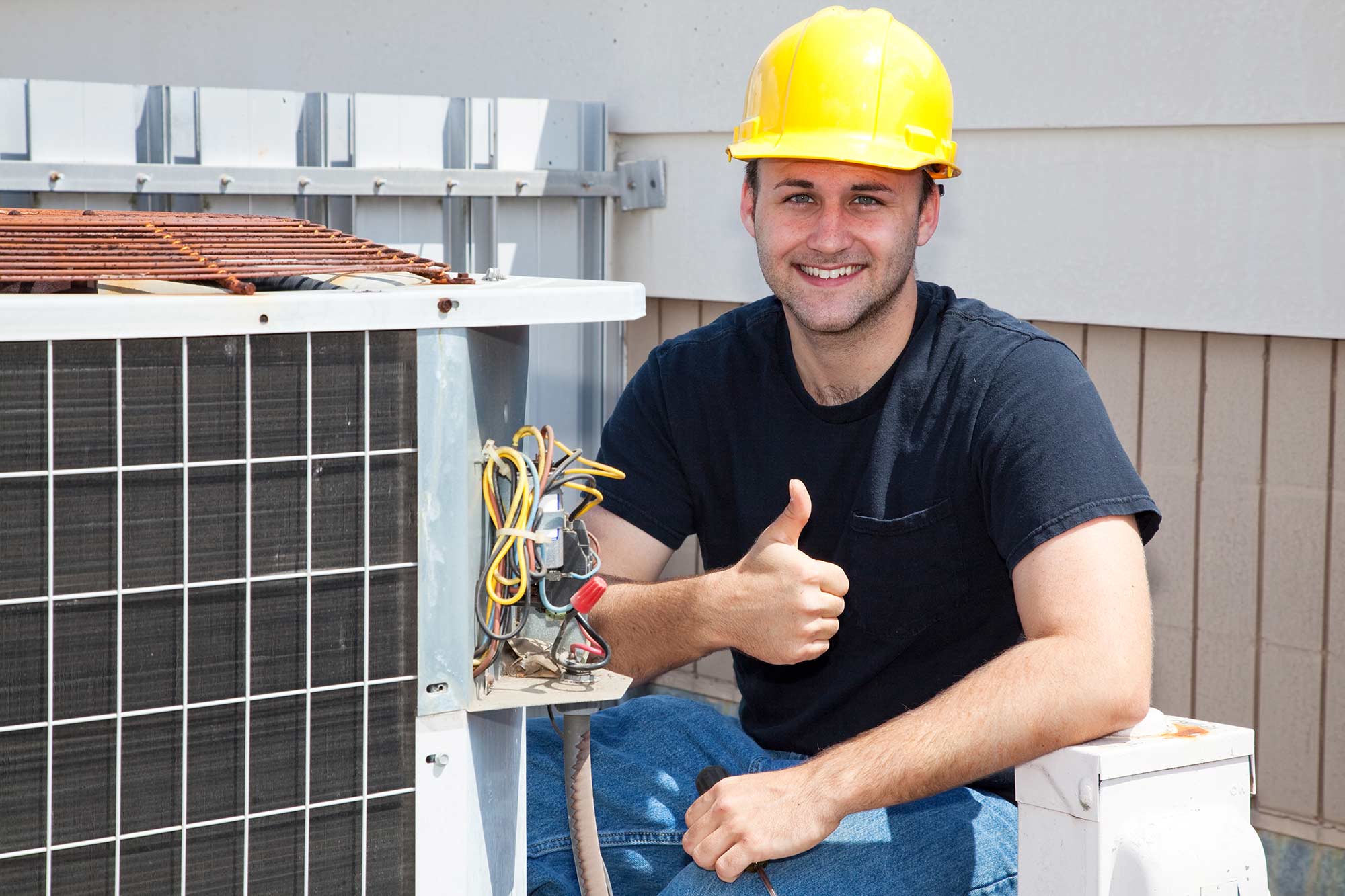The Relevance of A/c Knowledge: Revealing Causes of Air Conditioner Issues for Home Owners
Property owners frequently forget the value of understanding their HVAC systems. Acknowledging common signs of a/c troubles can lead to timely interventions. Concerns like insufficient air conditioning or uncommon sounds are not just aggravations; they can suggest deeper worries. By discovering the origin of these troubles, homeowners can improve system efficiency and extend its life-span. What are one of the most common problems that can emerge, and how can they be successfully resolved?
Usual Indicators of Air Conditioning Problems
How can property owners identify issues with their cooling systems prior to they intensify? Acknowledging typical indicators of a/c troubles is essential for timely maintenance. One prevalent indicator wants cooling; if the air conditioning device falls short to reduce the indoor temperature level, it might signal underlying issues. Unusual noises, such as grinding or hissing, can likewise suggest mechanical failures or loosened components - AC repairman. Furthermore, home owners must be skeptical of odd odors originating from the unit, which might recommend mold development or electrical problems. Constant biking on and off, understood as short biking, can suggest thermostat issues or cooling agent leaks. A boost in power costs without a matching rise in use may direct to inefficiency. By staying sharp to these indication, house owners can prevent extra significant issues and pricey fixings, guaranteeing their cooling systems operate successfully throughout the warmer months

Recognizing Cooling Agent Issues
Refrigerant problems can significantly affect the performance of a cooling and heating system. Homeowners must understand the signs of reduced refrigerant levels and the importance of identifying cooling agent leakages. Attending to these issues promptly can avoid more damage to the system and guarantee peak cooling down performance.
Reduced Cooling Agent Degrees
A common concern that homeowners may encounter with their heating and cooling systems is low refrigerant degrees, which can substantially affect the system's effectiveness and performance. Cooling agent is vital for the cooling procedure, absorbing heat from indoor air and releasing it outside. When degrees go down, the cooling device battles to cool down the room properly, resulting in increased energy usage and possible system strain. Symptoms of low refrigerant include insufficient cooling, longer run times, and ice development on the evaporator coils. Homeowners might additionally observe unusual sounds as the compressor works harder to make up for the shortage. It is necessary for property owners to comprehend the value of preserving proper cooling agent levels to guarantee peak HVAC performance and durability.
Refrigerant Leaks Detection
Where might a home owner begin when encountered with the opportunity of refrigerant leakages in their heating and cooling system? The initial step involves keeping an eye on the system's performance. Indications such as decreased cooling effectiveness, ice formation on coils, or hissing audios may indicate a cooling agent leak. Property owners ought to likewise examine for noticeable indications of oil deposit, typically an indication of a leakage. Using a cooling agent leak detector can supply even more exact identification. If suspicions continue, getting in touch with a qualified HVAC service technician is important, as they have the knowledge and devices to locate leakages efficiently. Trigger discovery and fixing of cooling agent leakages not only boost system efficiency yet also avoid possible environmental harm, making it an important aspect of HVAC maintenance.
Electrical Failures and Their Impact
Electric failures can significantly affect heating and cooling systems, particularly through concerns like breaker breakdowns and faulty wiring. These issues not only interfere with the system's efficiency however can also lead to costly repair services and safety and security risks. Recognizing the effects of such failings is crucial for house owners to preserve an effective and safe cooling and heating atmosphere.
Breaker Issues
Exactly how can breaker concerns impact the efficiency of a cooling and heating system? Breaker act as crucial safety and security tools that manage electric flow to HVAC devices. If a breaker trips often, it disrupts power supply, resulting in inconsistent home heating or air conditioning. This can cause substantial stress on the system, causing inefficient procedure and prospective damages to components. Home owners may notice raised power bills as a result of the HVAC system's struggle to keep desired temperature levels. In addition, duplicated interruptions from tripped breakers can reduce the life-span of the air conditioner system, calling for pricey repairs or replacements. Regular upkeep of breaker is crucial, as it guarantees a stable power supply, inevitably boosting the general effectiveness of the cooling and heating system.
Faulty Wiring Impact
Regularly overlooked, defective electrical wiring can have alarming effects for heating and cooling systems. Electrical wiring issues may cause brief circuits, resulting in regular malfunctions and boosted repair service prices. On top of that, incorrect circuitry can cause inefficient power usage, resulting in higher energy bills and stress on the system. In serious instances, damaged electrical wiring can cause electric fires, posturing a significant safety risk to house owners. In addition, these electrical failures can damage HVAC elements, resulting in costly replacements or comprehensive repair work. Homeowners must focus on normal evaluations by qualified experts to determine and click here remedy electrical wiring troubles prior to they escalate. Recognizing the effects of faulty circuitry can help assure the durability and security of a/c systems, inevitably safeguarding both the home and its owners.
Clogged Filters and Their Repercussions
While several property owners might forget the significance of regular filter maintenance, clogged up filters can cause considerable effects for a/c systems. When filters become obstructed with dirt, dirt, and particles, air flow is restricted. This decrease in air flow compels the system to function harder, causing raised power usage and potentially greater energy expenses. Over time, this pressure can trigger deterioration on components, leading to premature system failure.
In addition, clogged filters can jeopardize indoor air high quality. Toxins and irritants might distribute throughout the home, worsening respiratory system problems and allergic reactions for owners. In addition, insufficient air flow can trigger the evaporator coil to freeze, bring about costly repairs and inefficient air conditioning efficiency. Regularly altering or cleansing filters is a basic yet important maintenance task that can aid assure the long life and effectiveness of HVAC systems, eventually profiting both the house owner's comfort and their funds.

Thermostat Malfunctions Discussed
What happens when a thermostat malfunctions can greatly impact both convenience and power efficiency in a home (HVAC company). A defective thermostat may fail to accurately read the temperature, bring about overcooling or inadequate cooling. This discrepancy can create pain for occupants and lead to greater power expenses, as the a/c system functions tougher than required
Common issues include dead batteries, which can make electronic thermostats inoperative, and loose electrical wiring that interrupts interaction between the thermostat and the HVAC unit. Furthermore, obsolete or improperly calibrated thermostats may not react properly to temperature level modifications, additionally worsening power ineffectiveness.
House owners must be alert for indicators of breakdown, such as irregular temperature levels or unanticipated power expenses. Normal checks and understanding of the thermostat's capability can help identify issues early, making sure peak efficiency of the cooling and heating system. Dealing with thermostat problems immediately is necessary for keeping a comfy living atmosphere and managing power usage effectively.
The Duty of Normal Maintenance
Regular upkeep plays an important duty in guaranteeing the durability and efficiency of heating and cooling systems. Property owners who focus on regular checks can stop minor issues from escalating right into expensive repair services. Routine maintenance normally includes tasks such as click here cleaning filters, evaluating ductwork, and examining refrigerant levels. These tasks aid maintain optimal airflow and system performance, minimizing power usage.
In addition, a properly maintained a/c system runs extra successfully, giving consistent comfort throughout the home. Regular tune-ups can likewise expand the life expectancy of the device, causing significant cost savings gradually. Property owners are urged to arrange professional inspections a minimum of yearly to identify potential issues early.
Furthermore, lots of producers call for normal upkeep to maintain guarantees, making this practice not only advantageous however usually needed. In general, recognizing the importance of routine maintenance equips property owners to safeguard their cooling and heating systems versus unexpected failures and enhance their investment in home convenience.
Often Asked Questions
Just How Can I Boost My Air conditioner's Power Effectiveness?
Improving an air conditioning's energy performance includes routine maintenance, cleaning or changing filters, securing ductwork, ensuring correct insulation, using programmable thermostats, and scheduling expert inspections to recognize and rectify potential issues impacting performance.
What Is the Lifespan of a Common A/c Device?
A regular a/c unit has a lifespan of 15 to two decades, relying on upkeep, usage, and ecological aspects. Normal maintenance get more info can substantially expand its functional life and enhance overall efficiency.
When Should I Replace My Air Conditioning System?
An air conditioning system need to typically be replaced every 10 to 15 years. Indicators for substitute include constant repairs, increasing energy expenses, and not enough cooling, indicating that an upgrade might be more economical and efficient.
Can I Repair A/c Troubles Myself?
Yes, people can repair air conditioning troubles themselves by checking filters, making sure power supply, and inspecting for visible problems (HVAC contractor). Complex problems typically call for specialist aid for accurate medical diagnosis and safe repair, guaranteeing suitable system efficiency.
Just how Do I Choose a Reputable HVAC Service Technician?

To pick a trusted cooling and heating specialist, one need to seek recommendations, examine on-line reviews, validate licenses and insurance, evaluate experience, and request detailed quotes to ensure quality solution and reasonable rates prior to choosing.
Verdict
To summarize, a solid understanding of HVAC systems allows homeowners to properly identify and resolve usual air conditioning problems. Recognizing signs such as poor cooling or increasing energy costs permits timely interventions, which can significantly improve system efficiency and longevity. By staying notified about possible issues like cooling agent leaks, electrical failings, and clogged filters, property owners can take aggressive measures to keep their systems, eventually ensuring convenience and advertising a healthier living setting. Routine upkeep continues to be key to this undertaking.